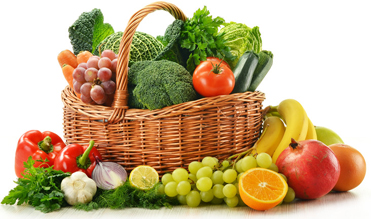 Are you planning to switch to a vegetarian diet? Multiple studies have linked vegetarian diets to a lowered occurrence of chronic disease and cancer. In America, where there are many obese people with a threat to such diseases, switching to a vegetarian diet could work wonders. However, you can’t simply switch to a vegetarian diet and assume that everything will go smoothly. There are certain factors you need to consider to make this effort effective and bring in positive changes.
Are you planning to switch to a vegetarian diet? Multiple studies have linked vegetarian diets to a lowered occurrence of chronic disease and cancer. In America, where there are many obese people with a threat to such diseases, switching to a vegetarian diet could work wonders. However, you can’t simply switch to a vegetarian diet and assume that everything will go smoothly. There are certain factors you need to consider to make this effort effective and bring in positive changes.
First, make sure that your vegetarian diet is low on processed foods that are high in calories, sugar, fat and sodium. Include a variety of foods as no single item would provide all the nutrients that the body needs. Here are some important points to help you develop a healthy vegetarian diet plan:
- Plant-based diets are typically low in iodine which regulates metabolism, growth and function of key organs. Including one-fourth of a teaspoon of iodized salt a day in your food can make up for this deficiency.
- Iron is a key component of red blood cells, but as it is not easily absorbed from plant sources, the recommended intake of iron would be almost double that for non-vegetarians. Opt for dried beans and peas, whole-grain products, dark leafy green vegetables, lentils, enriched cereals, and dried fruit along with Vitamin C containing fruit to help your body absorb iron. To prevent zinc deficiency, include whole grains, soy products, legumes, nuts and wheat germ or cheese.
- Non-vegetarians get enough Omega-3 fatty acids from fish and egg which is important for heart health. To compensate for the loss, include more canola oil, soy oil, walnuts, ground flaxseed and soybeans.
- Getting enough protein is very important for healthy skin, bones, muscles and organs. You would have enough of it even when eating small quantities of egg and dairy products. Vegetarians can compensate by consuming soy products, legumes, lentils, seeds, nuts and whole grains.
- Vitamin B-12 is required to produce red blood cells and prevent anemia. Top vegetarian sources of vitamin B-12 include cheese, whey powder, milk and yoghurt, and marmite. Ask your doctor if you can take a B-12 supplement.
Get sufficient quantities of dark green vegetables which are good source of calcium. This is important to maintain strong bones and prevent fractures. For vitamin D, try fortified products such as breakfast cereal, orange juice, yogurt, and mushrooms.
